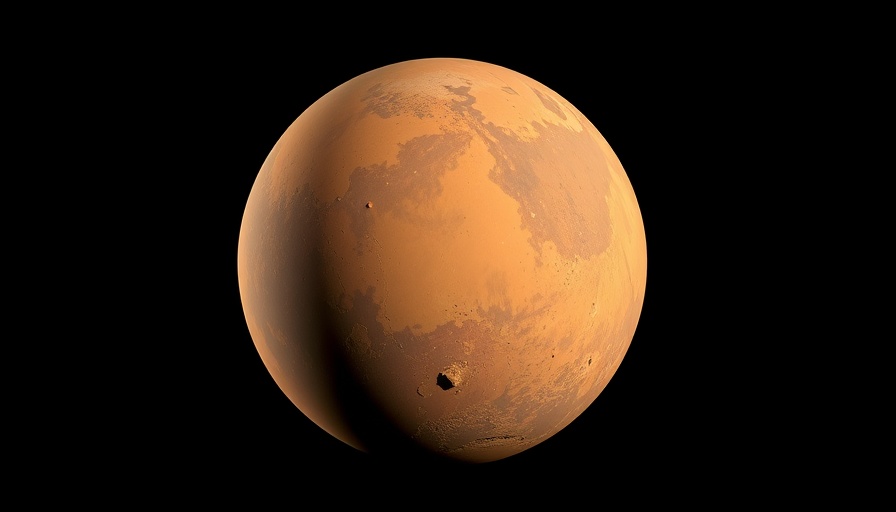
Elon Musk's Ambitious Plan for Mars
Elon Musk, the billionaire entrepreneur known for his ventures in electric vehicles and space exploration, is now setting his sights on Mars in what could be one of the most audacious business ventures to date. Recently, as he prepares to step back from his role at the Department of Government Efficiency, he is creating new companies that hint at his ongoing commitment to colonizing the Red Planet. The formation of Red Planet I, II, and III could be more than just a business name; it reflects Musk's long-standing vision for a human presence on Mars.
A New Chapter in Musk's Career
Despite facing challenges with Tesla's stock performance and juggling multiple demanding roles, Musk's drive to innovate remains undeterred. The establishment of these LLCs in Texas—registered by his adviser Jared Birchall—signals that Musk might be gearing up for something monumental. His history of setting up corporate structures for significant projects precedes him; the creation of companies to facilitate Twitter’s acquisition serves as a prime example.
The Growing Interest in Mars Colonization
Interest in Mars has surged, not only from Musk but from various sectors including technology, environment, and even politics. As many scientists advocate for space colonization to ensure humanity's survival, Musk's endeavors align with broader discussions about the future of Earth's increasingly fragile environment. NASA's plans for Mars missions and private space companies endeavoring to transport humans to the planet underscore the urgency and potential profitability of extraterrestrial innovation.
Is It Realistically Possible to Build a Settlement on Mars?
While Musk's vision paints an inspiring picture of humans on Mars, the practicalities involve daunting challenges: atmospheric conditions, sustainable living, and transport logistics. Experts in space exploration emphasize the importance of not only building a presence but also maintaining one in hostile environments. Insights from engineers and scientists are critical as they delve into the technologies that could one day support human life on another planet.
Public Perception and NASA's Perspective
The government and public's reception of private entities colonizing planets varies widely. Much of the conversation revolves around ethical considerations and the implications of privatizing extraterrestrial exploration. NASA, historically a public government agency, is beginning to shift its approach, embracing partnerships with commercial ventures. This shift creates a backdrop for Musk and others to navigate the policies establishing a human presence on Mars.
Future Implications for Humanity
As Musk knocks on the door of potential Mars colonization, it also raises questions about the implications for Earth. Will such ventures divert attention from addressing critical issues such as poverty, climate change, and healthcare? Or could they create new economic opportunities and innovations that eventually help resolve these pressing matters? The intersection between ambition and practicality is delicate; each tenuous step could pave the way for humanity’s next giant leap.
What Lies Ahead for Musk and Mars?
Musk's plans are not set in stone, but they reflect a growing trend among entrepreneurs and innovators to look beyond the Earth for future ventures. As he prepares to balance his roles in several major companies, the dual goal of enhancing life on Earth while exploring life beyond requires not just vision but resiliency in the face of skepticism. As Musk himself has famously said, “When something is important enough, you do it even if the odds are not in your favor.”
In light of Musk's ambitions, the conversation about colonization goes beyond just business—it forces society to consider the future path of humanity. How we adapt to new spheres of existence may define our legacy for generations to come.
As discussions about Mars continue to evolve, one thing remains clear: Elon Musk is not just a businessman; he is a harbinger of a new era, where the future of humanity may stretch far beyond our planet.
 Add Element
Add Element  Add Row
Add Row 



 Add Row
Add Row  Add
Add 


Write A Comment